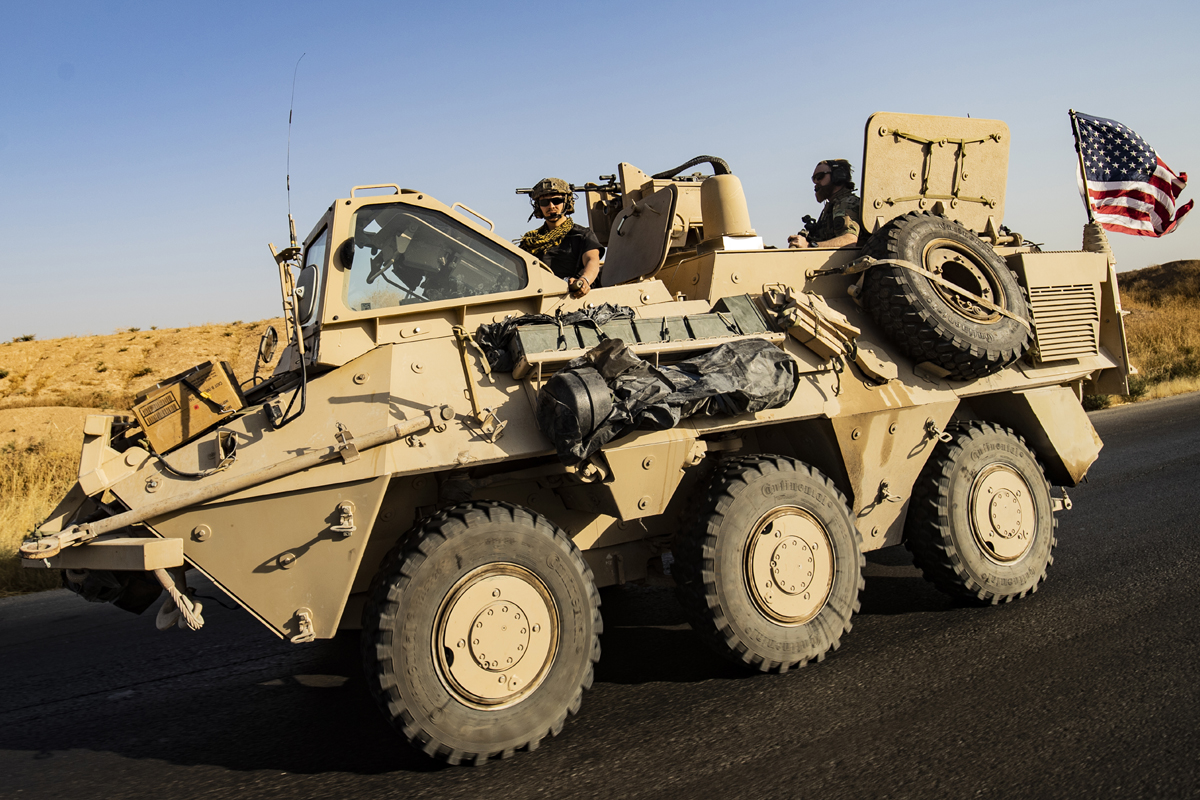Yet another erratic initiative on the part of the White House has renewed the ferment on the Syrian-Turkish border. The ditching of the Kurdish- led Syrian Democratic Forces threatens to destabilise the region further still. Prompt and robust has been India’s condemnation of the Turkish offensive against the Kurds, a response that can perhaps be contextualised with Turkey’s vehement opposition to recent developments in J & K. Clearly, Trumpian diplomacy has acceded to the wishes of the Turkish President, Recep Tayyip Erdogan, following a phone call from Ankara.
Rather abruptly, let alone close reflection, the US has signalled its intent to withdraw troops from the north-eastern area bordering Turkey, abandoning the Kurdish-led Syrian Democratic Forces with which the US has partnered. More accurately, the impetuous Donald Trump has given his approval to a Turkish invasion. Nay more, the US President has rather disingenuously countered the backlash even from his own party at the prospect of further chaos in a desperately unstable region with the assertion that should Ankara do anything that “I, in my great and unmatched wisdom, consider to be off limits, I will totally destroy and obliterate the economy of Turkey”.
Ankara has long sought to confront the SDF, deemed as indistinguishable from Kurdish insurgents inside Turkey. The furious offensive over the past 48 hours may or may not boost Erdogan’s plummeting ratings at home. The ultimate objective is to move many of its 3.6 million Syrian refugees to the area and thus redefine its demography. Turkey never forgave its ally for partnering with the SDF; but President Erdogan may now find that, thanks to President Trump, he has taken on more than he can manage. Despite their critical role in tackling the Islamic State of Iraq and Syria, the Kurds, with whom the US has a transactional relationship, cannot be surprised to be dropped yet again.
And this ethnic segment has now been let down by the US President who sees his re-election prospects as resting in part on bringing US soldiers home. It is only 10 months since James Mattis resigned as Defence Secretary after the President said he was withdrawing US troops. In the event, the Pentagon halved its troops and did its best to keep the mission out of Mr Trump’s reckoning. Fundamentally, it is pretty obvious that the President of the United States of America lacks a roadmap both in matters domestic and diplomatic. Arguably, Turkey’s offensive against the Kurds could result in yet another humanitarian catastrophe and a revitalisation of Isis.
However, both eventualities can be averted depending on the US admninistration’s praxis and no less crucially on how the other parties respond. The risks of the latest misdventure are only increasing not the least as the impeachment process gathers pace. There are inherent dangers if a country’s foreign policy is bereft of strategy. The trilateral tension between America, Turkey, and the Kurds in north-east Syria can be devastating in due course of time.











